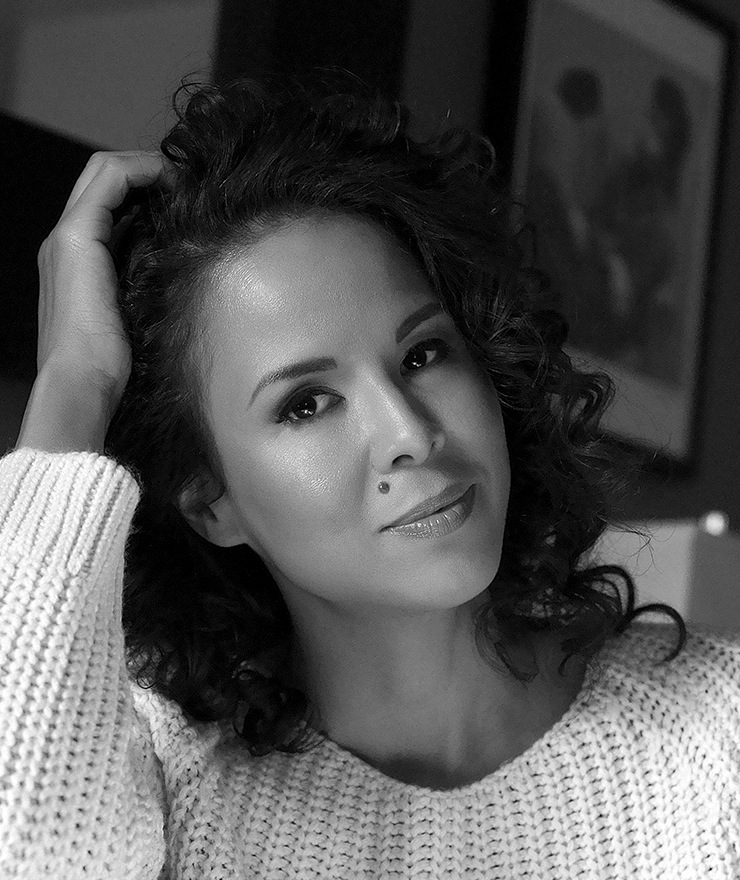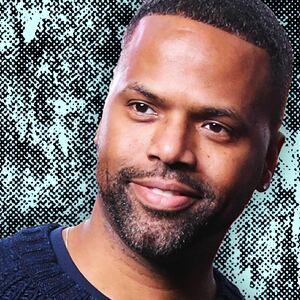At what point does blind loyalty become betrayal?
In the firestorm of controversy surrounding the Women’s March, co-president Tamika Mallory has remained steadfast in her refusal to condemn Nation of Islam leader Louis Farrakhan. Mallory argues that to condemn a person is antithetical to her personal ethos and runs contra to the work she has been doing for the last 20 years. I see the distinction between what is being asked of Mallory versus her response; quite frankly, it is paternalistic to force a person to parrot the exact language that one believes they must use in order to satisfy the feelings of betrayal and violation that her association with a virulently homophobic, misogynistic, transphobic, anti-Semitic man such as Farrakhan conjures. Without properly contextualizing their relationship, it is easy to demand that Mallory condemn a man who created a community that uplifted her during one of the most difficult times in her life.
Mallory became a single mother to her son, Tarique, in 2001 when his father, Jason Ryans, was shot to death. In the wake of his tragic passing, Mallory found support within the Nation of Islam, and thus began a nearly two-decade relationship with the NOI and its controversial leader. “In that most difficult period of my life, it was the women of the Nation of Islam who supported me and I have always held them close to my heart for that reason,” Mallory wrote in a statement published on NewsOne.
ADVERTISEMENT
The truth is, we have all at one point or another found ourselves in a situation where we must make hard choices on relationships with people who embrace highly problematic political ideologies or actions. Unfortunately, Mallory’s troubling support of violent men doesn’t stop with Farrakhan. She also continues to be a friend and ally of Russell Simmons, a man who has been accused of rape by at least eight women, myself included.
On June 28, 2018, The Hollywood Reporter published my allegations of being raped by Simmons and sexually assaulted by Extra co-host A.J. Calloway. The story was originally slated to come out at the end of 2017, but NBC News refused to move forward with my claims after six months of extensive research and investigating by Joy-Ann Reid, ultimately employing a similar excuse as the one they used with Ronan Farrow’s now Pulitzer Prize-winning reporting on Harvey Weinstein for The New Yorker.
In a recent piece for New York magazine’s The Cut, Rebecca Traister wrote about the need to see the Women’s March as something much bigger than Mallory, and encouraged those who were angry and disillusioned with the national chapter to still go out and protest. As I read her words, “…and now you’re not going to march because one of the national Women’s March co-chairs is as beset by the kinds of bias endemic to this country as many of the rest of us are, then you’re not doing yourself or our future any great progressive favor,” I cringed. My reasons for choosing not to march go beyond the accusations of financial impropriety, anti-Semitism, and mismanagement by the national organization. I chose not to march not only because I had misgivings about the ways in which Mallory had handled the debacle around her continued relationship with Louis Farrakhan but also because, shortly after Kim Masters’ feature on me in The Hollywood Reporter was published, Mallory again demonstrated her unwillingness to divest herself from relationships with a problematic man. In this case, it was her vocal support of Russell Simmons, the man whose actions nearly ended my life.
During her interview on a podcast that aired three days after my story broke, Mallory was asked about me and my allegation of being raped by Russell Simmons in 1994. In her response to the host, she made it clear that she did not believe survivors. “Yeah. I mean, I don’t know if I believe in it or not, and I’m not going to sit here and say that I believe all of it be... because I’ve seen some things in this industry and in the music industry that, you know I know that there have been people who have lied.” She emphasized her continued close friendship with the embattled mogul and said that she had directly asked him if the allegations were true and that he had denied them. In addition, she fell back on the well-worn, “Well, I wasn’t there and don’t know what really happened,” trope, adding, “I do believe that every woman who comes forward, that their... their claim needs to be substantiated and it needs to be, someone needs to answer for what they say. You know, none of us has to be so quick to try to protect a friend or a family member that we ignore the claims and the pain of women.” Her response was all over the map, and not one that would be expected from the co-president of the Women’s March.
As I listened to Mallory’s response, I felt profound hurt and disappointment. Quite frankly, I couldn’t believe what I was hearing. I then thought of the other women who have accused Simmons of sexual assault and was incensed that she did not believe that all our stories of victimization were true. Her attempt to defend her position on Simmons was a slap in the face to all survivors of sexual violence. As I listened to her interview a second time, I thought about the people who have been assaulted and wondered how they would feel knowing that one of the chief organizers of one of the largest public demonstrations in U.S. history was on the record making excuses for the actions of a credibly accused rapist. This isn’t an issue of “misspeaking.” Her refusal to condemn Farrakhan and choosing to stand by Simmons isn’t a mistake. We are all human and prone to mistakes but if we repeat a behavior, it’s a habit. Mallory’s views are completely at odds with the goals of the Women’s March and the women’s movement.
A few months after The Hollywood Reporter piece ran, I sat down and wrote about the damage that women do to each other when they ignore the sexually and physically abusive actions of men in a piece for Bitch magazine that included my dismay at Mallory’s public statements about Simmons. As of today, I still have not spoken with her, although after the piece was published, her PR representative sent me a note saying that they understood that I had been trying to reach Mallory and wanted to know if there was anything that I needed that they could help me with (I hadn’t—the magazine tried to obtain comment from Mallory prior to the publication of my essay). At no point after I made my concerns known has she attempted to contact me. One of my friends asked me if I intended to reach out to her, but as a survivor, the onus is not on me to attempt to discover why a woman I respected has chosen to support the man who raped me.
I have seen it argued that the Women’s March, Inc. is not the Women’s March movement. In a recent Daily Beast piece, former Women’s March Inc. co-founder Vanessa Wruble clarified the structural composition of the March. “People thought it was one group doing everything [in 2017] when in fact it was 600 marches led by 600-plus women who were working in concert with one another, but who had never had any contact and didn’t know each other.” However, it is impossible to separate the larger movement from Mallory and her co-presidents Linda Sarsour, Bob Bland, Breanne Butler and Carmen Perez, who are still seen as the leaders of a “leaderless” movement. They inserted themselves into the larger narrative of the movement, and of all the grassroots organizers, they are the ones who have benefitted the most from their association with the March. It was Mallory and Co. who were seen in all forms of media—print, digital and television—representing the millions of participants and organizers who helped make the 2017 March such a huge success. They were named in Time magazine’s 100 “Most Influential People” of 2017 for their work around the March. Therefore, it is unrealistic to chastise those of us who chose not to participate in the March this year or to no longer support the March itself because of Mallory.
Mallory, it should be noted, is an accomplished organizer with many years’ experience behind and potentially in front of her. But her recent gaffes have exposed a distinctly anti-woman stance which overshadows her prior work. Now, I am not suggesting that she be “cancelled.” What I am saying is that until she addresses her inner conflicts when it comes to harmful men, Mallory is ill-suited to lead a diverse, national group committed to fighting for women’s rights. Leading the Women’s March is not a right—it is a privilege.
Given the long-overdue shift in public consciousness around the singer R. Kelly, Mallory’s stance is especially troubling given how familiar movement workers are with the difficulties that Black women and girls face with having their stories of sexual victimization taken seriously. Mallory can mourn her relationship with Simmons privately but still be very clear about her position on rape publicly. There is absolutely no place for equivocation on the issue of sexual assault. Transphobia, sexism, homophobia, and anti-Semitism are clearly not deal breakers for Mallory, and apparently rape isn’t as well. This rot within the ranks of the Women’s March must be ripped out by its roots and we must trust that the movement will march on, irrespective of who is seen as the “face” of the national organization.







